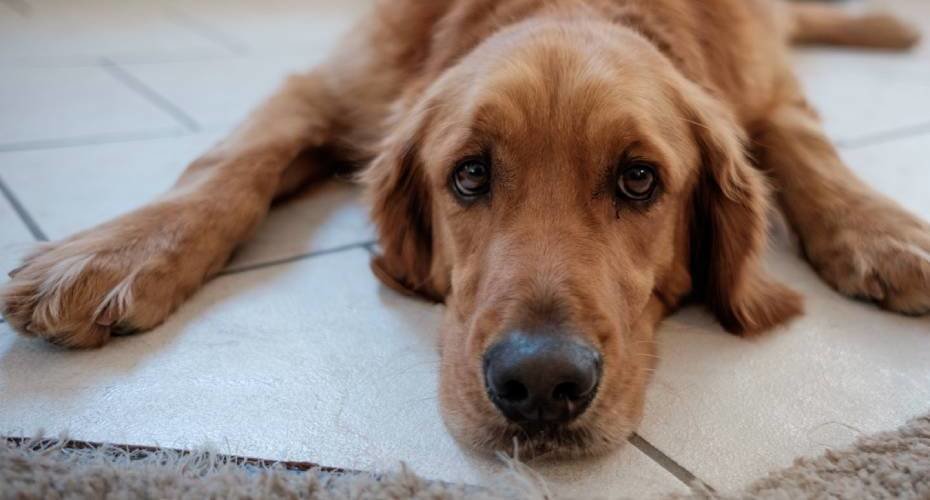
As another year draws to a close many people find there is an increase in the number of parties they attend and guests they host. And in Australia at least, the end of another year means the start of another summer and the arrival of storm season. While you might agree with Andy Williams that it’s the most wonderful time of the year, your pet may not feel the same.
Anxiety can affect both cats and dogs and cause them to exhibit a worrying range of symptoms. It is important that if your dog or cat shows any of the symptoms listed below that they are assessed by a veterinarian to rule out any underlying medical conditions that could be causing the symptoms.
Causes of anxiety
Anxiety in your pet can be caused by a variety of issues and situations. At this time of year, the change in routine, extra guests or loud noises from fireworks or thunderstorms are some of the more common triggers. Pets can also experience anxiety when the household gets a new member such as a baby or another pet, they take a trip to the vet or they may experience separation anxiety when you are not home.
Signs and symptoms of anxiety in dogs
Anxiety in dogs can present with a wide range of symptoms. Common symptoms of anxiety include:
- Destroying furniture, shoes or other items
- Barking, howling or whining
- Going to the bathroom inside the house
- Aggression towards other pets or people (biting or growling)
- Shivering or trembling
- Pacing or appearing restless
- Hiding or cowering from you or strangers
- Trying to escape from the house or yard
- Excessive licking or chewing (can often cause bald spots)
- Not eating at all or eating too much
Signs and symptoms of anxiety in cats
Cats with anxiety can exhibit some similar symptoms to dogs with the most common symptoms including:
- Loud meowing that can often sound quite distressing
- Going to the bathroom outside of the litter box or spraying
- Aggression towards other pets or people (biting, swiping or growling)
- Clingy behaviour such as following you around the house
- Hiding from you or strangers
- Trembling or shivering
- Pacing or appearing restless
- Not eating or eating too much
- Lack of interest in playing or appearing lethargic
- Vomiting or diarrhoea
- Change in mood
Treating anxiety in your pet
Once your pet has been assessed by a veterinarian and other underlying medical conditions have been ruled out it is time to make a treatment plan. If your pet suffers from extreme anxiety, your vet may prescribe an anti-anxiety medication to help reduce your pet’s anxiety levels.
If you are able to identify particular events that can trigger anxiety in your pet, there may be steps you can take to re-train your dog to not associate the event with feelings of anxiety. A behaviourist or animal trainer may be able to help with this re-training.
There are also a variety of products available on the market that can help keep your pet calm during times of stress. These products contain ingredients that help relax your pet and are available as tablets, capsules, collars or diffusers.
- and comes as a chewable tablet that contains the natural ingredients tryptophan and B group vitamins. This product does not cause drowsiness and helps maintain emotional balance in dogs and cats during times of stress such as car trips, vet visits or when experiencing separation anxiety.
- capsules contain a natural ingredient derived from a protein in milk called casein that has clinically proven calming properties to help relax cats and dogs. Zylkene does not cause drowsiness and the capsules can be opened and added to your pet’s food for easy dosing. Zylkene is available as a , and capsule for cats and dogs of all sizes.
- Adaptil is available as a , a and a , all of which excrete an odourless natural chemical signal (pheromone) that is specific to dogs and helps them to feel relaxed and reassured during times of stress.
- or are similar to Adaptil in that they also contains an odourless natural chemical signal (pheromone), but Feliway contains a pheromone that is specific to cats. The pheromones excreted by Feliway help to comfort cats and thereby reduce the symptoms of stress and anxiety.
You may wish to provide a space in your home where your pet can retreat to if they feel anxious to help them to calm down. A soft bed for your dog or a dark cave for your cat should be placed in a quiet part of the house and if you notice they are becoming distressed, take them to this area and sit quietly with them. Try speaking to them in a happy voice or distracting them with their favourite toy once they have calmed down. Avoid lavishing too much attention on your pet when they become stressed. They may think they are being rewarded for their anxious behaviour and will engage in these behaviours the next time they are seeking your attention.
Being able to recognize the signs and symptoms of anxiety in your pet is crucial as treatment should be commenced as soon as possible. If anxiety in a pet is left untreated, your pet can become extremely unwell and anxiety becomes harder to treat the longer it is left unchecked.





